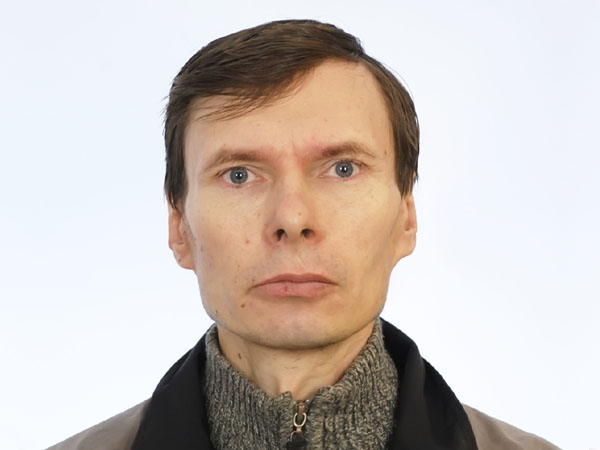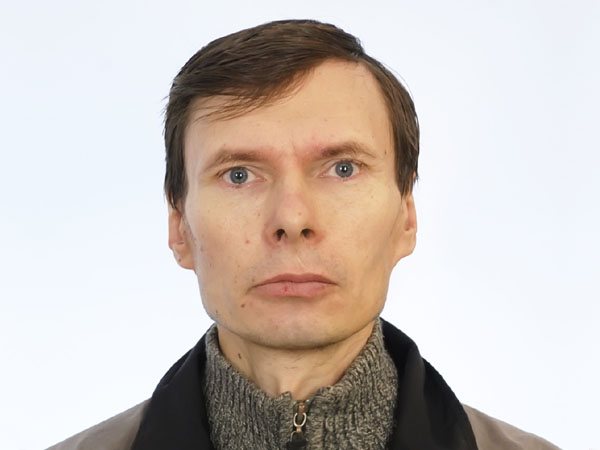Blessed is he who felt the Spiritual Hunger
Blessed is he who felt the Spiritual Hunger
“Blessed is he who in his youth was truly youthful,
Blessed is he who has matured in his time.”
A.S. Pushkin
Blessed is he who felt the Spiritual Hunger
And didn’t dry out his feelings,
Who knew the Scarlet Cold of the ascetic life
And knew the high passion as well,
Who after overeating the honey of obsession
Dispelled his illusions of youth
And began to doubt his erstwhile ideals
During his maturing years.
Blessed is he who didn’t bury his parents early
And found his only love and was mutually loved,
Who had patience in his familial relationships,
And didn’t begin a drinking bout at hard times,
Who wasn’t revengeful and hot-headed,
Who could reconcile enemies, saying a joke,
Who cared for his honor and his conscience
As strong as he cared for God.
Blessed is he who, during the era of chaos,
Wasn’t bogged down in his daily troubles,
But focused his mind on higher revelations
And the eternal honey of Holy Scriptures,
Who didn’t bear evil through his life
And who did good not for praise or reward,
Who saved his soul young, becoming wiser,
And in his heart has become closer to God.
Where is Russia headed?
Russia, whose spirituality has been evident time out of mind, will sooner or later become a theocratic state. Key roles in it will be assumed by sages and religious leaders. Bureaucrats and officials, as usual, will take over executive power, while thugs, just like they do now, will keep the peace in society and defend the Government’s borders. Other citizens, including entrepreneurs, bankers, the entire working class will continue to carry out their activities just as before.
What is the difference between this way and the current order of things. First off, this pertains to a completely different idealogy: to replace the materialism that has taken the form of liberal capitalism, objective idealism will trend and society will begin to revolve around worshiping God. Consequently, people’s life goals are no longer based on material welfare and pleasure, but on a version of heaven on earth. To be more precise, people will strive to not only reach heaven, but to develop a love fore God as well — while fully understanding that this love will embody perfect happiness for them. The second difference is that the head of the Government will not display voluntarism, but will execute the orders of the self proclaimed wise, that is, he will be the head of the executive power. It doesn’t seem to matter much if this is to be a king or a president. The next difference is that third estate-entrepreneurs, bankers and others are by status in society and will remain third, not first or second, as we witness today… The fourth important difference lies in the fat that there will be no democracy as we know it. This, however, meant that the opinion of layman or lower levels of society will have no sway whatsoever. At the same time, despite the difference in social status, a spirit of universal brotherhood will be cultivated along with the understanding that everyone is important in their own place. There will be other changes in society: for example, women will be employed less and more engaged in housekeeping and raising children; It is clear that such phenomena as alcoholism, drug addiction and free morals will become things of the past. All in all, the governing system in Russia will remain more or less authoritative, but with a pivotal diffirence in idealogy. Of course, this is all no more than a off the cuff prediction of Russia’s future, the details will unfold with time.
I believe that in ten years the head of the Russian Government might make this historical decision, meaning, adopt the system of principles listed above. However, this might take place significantly later. For a decision of this nature to be reached, at least three factor are necessary: the society’s disappointment in the current system, a crisis among Government agencies and some significant influence on society from sources of a specific religious idealogy. It is apparent, that these factors have not as of yet gained strength. However, it is also evident that the first important factor necessary for the adoption of this theocracy is the disappointment of the society, which continues to manifest itself more clearly. The economic crisis and the rise of unemployment in Russia, as well as the complicated foreign policy environment, do not contribute to confidence in what the future holds… Currently, many political scientists and economists are predicting a difficult future for Russia. I predict hat the period from 2017 to 2019 for Russia and many of its citizens will be especially gruelling. But there is always a silver lining: for people with a religious mindset, this is a time of testing and strengthening your faith, while for others, it’s time to comprehend your life path so far, so as to find new ideals and goals …
In the end, time will reveal whether my prognosis will ring true. But I have no doubt that in the course of time, theocracy will be established and a fundamentally different view of the world will prevail than reigns now.
About the author:
Vadim Zaitsev is a poet and fiction writer, a member of the Russian Union of Writers. He was born August 14, 1968 in the city of Novokuznetsk, where he lives till now. He began writing poetry in the early 1990s. Since 1995, his works are regularly published in newspapers and magazines of Novokuznetsk and in the almanac “Poet goda” (“The Poet of the Year”) of the All-Russian annual poetry contest of the same name. He is an author of a poetry book “About earthly happiness and unhappiness, and about different happiness,” Novokuznetsk, 2008. He was the finalist of the 2012 literary competition “Narodnyi Poet” (“The People’s Poet”).




